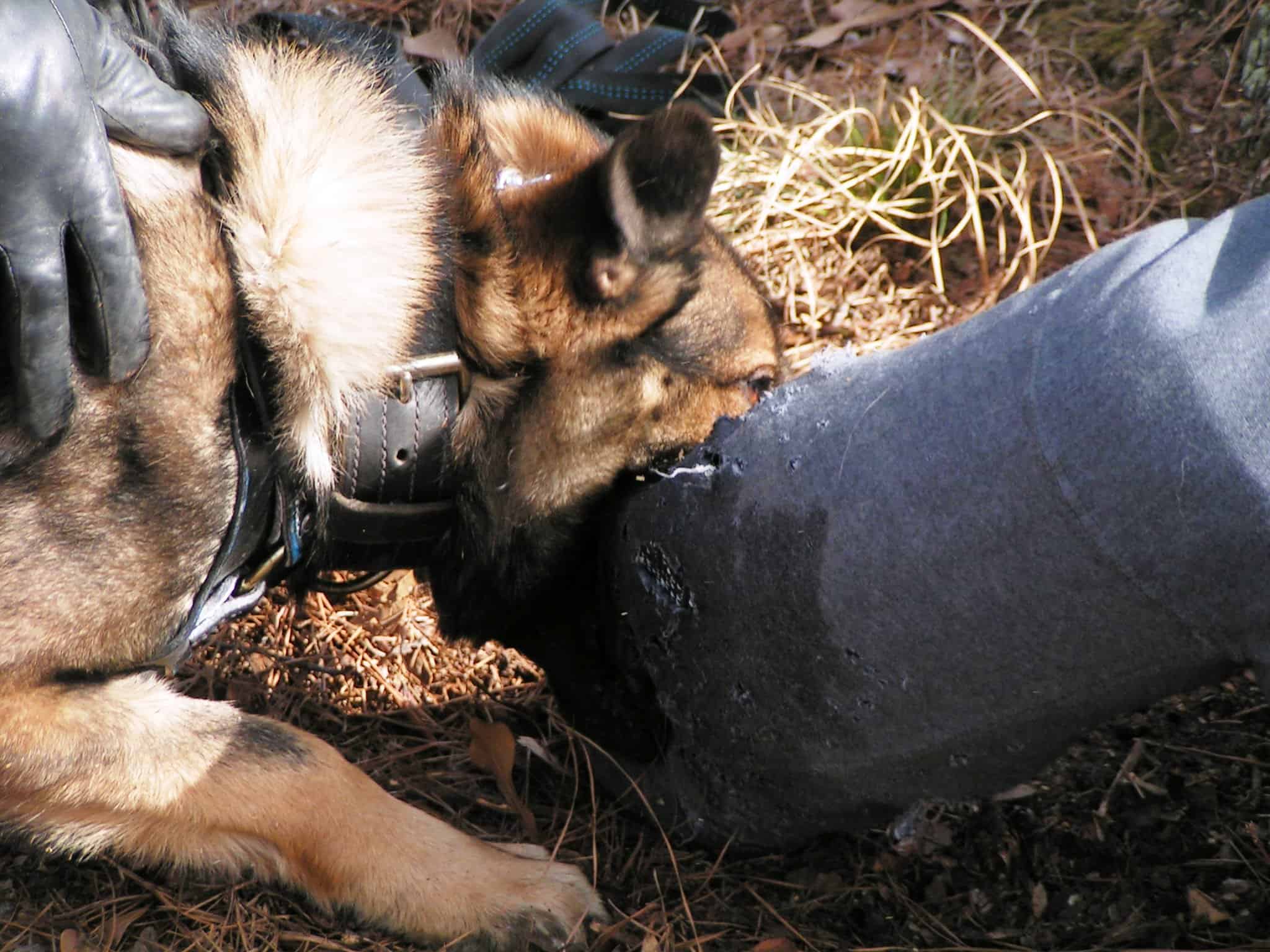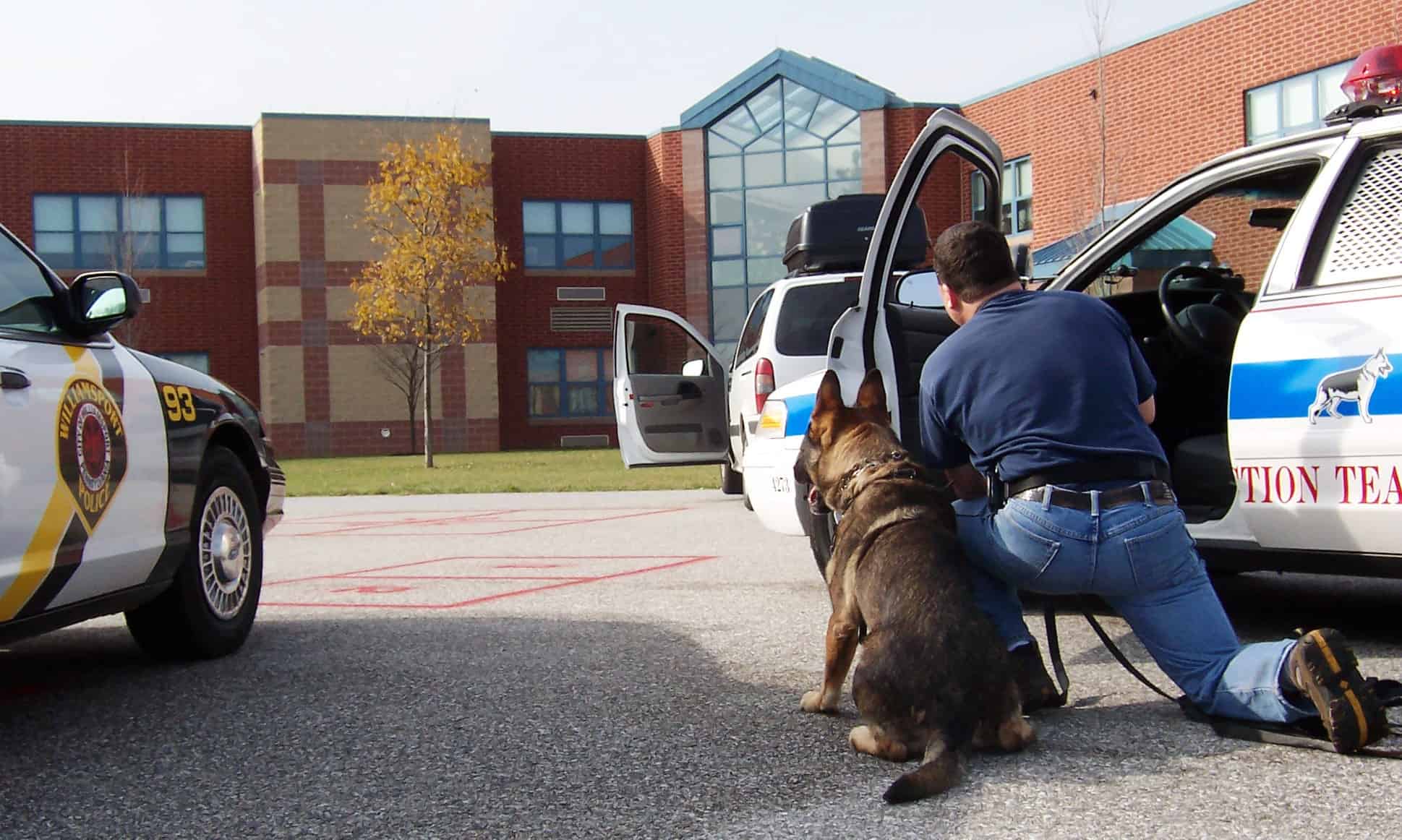Police K9 Instructors Course – How to Teach Police K9 Handlers Handlers
Whether you’re working with a new police dog handler or a seasoned handler that is now getting his second dog, understanding to teach them the skills they need to be the best handler possible takes work and experience. Police K9 training courses vary in length and, at times, there is a lot of information that has to be covered in a relatively short period of time. Learning to convey information in a manner that is concise and understandable to handlers requires a great deal of practice.
To start with, handlers should have a solid understanding of basic canine behavior. Learning to recognize body language and canine nonverbal communication is important to anyone working with dogs. Having a solid understanding of training methodologies such as reinforcement and punishment, shaping, chaining and successive approximations is also important to teaching and building sound behaviors for a Police K9. As a Police K9 Instructor, you should be fluent in these subjects.
Often, for a Police K9 Instructor, one of the most difficult things to teach a handler is how to work with detection dogs. Whether it is a bomb dog, drug dog, or cadaver dog, some basic fundamentals are all the same. Topics such as developing search patterns, leash handling, cueing and learning to read and recognize the dogs change in behavior are critically important to making a successful detection dog team. As a trainer or instructor you will often have to be creative in teaching subjects like odor theory, search patterns and recognizing change in breathing, behavior and final indication.
Learning to read and understand trailing dogs is another area where handlers often need considerable instruction to understand canine behavior and body language on the trail. Learning to understand and interpret negative indications and how best to communicate with the dog can take considerable time and practice. Handlers should also understand how to maintain the training for trailing as well as the other aspects of being a police K9 handler.
 Teaching apprehension training or bite work to a police K9 can be quite challenging. Learning to teach these techniques to Police K9 handlers can take quite a bit of skill. The dog and handler should both understand the fundamentals of working the dogs’ grip, targeting, and how to channel the dogs drive to create a well-balanced police K9. Other areas that should be taught are the call-off, building searches, felony vehicle stops, extractions, reaction to gunfire, passive bites, and handler attacks. A Police K9 Instructor should be able to teach these skills safely and effectively.
Teaching apprehension training or bite work to a police K9 can be quite challenging. Learning to teach these techniques to Police K9 handlers can take quite a bit of skill. The dog and handler should both understand the fundamentals of working the dogs’ grip, targeting, and how to channel the dogs drive to create a well-balanced police K9. Other areas that should be taught are the call-off, building searches, felony vehicle stops, extractions, reaction to gunfire, passive bites, and handler attacks. A Police K9 Instructor should be able to teach these skills safely and effectively.
If you are utilizing tools for training such as a clicker, remote training collar, choke chain, or prong collar, you must ensure that the handler you’re teaching fully comprehends its use and application. These tools are often an easy way to derail training programs if used improperly. Not only is it important that handlers understand the tools themselves, they must also understand the methodologies that drive the use of the tools.
Handler courses should also cover other pertinent information and you should be able to explain these topics and answer important questions about them. Understanding and teaching canine case law give the handler the legal foundation for his daily work. Without this knowledge, he or she will be uncomfortable or uninformed when dealing with legal issues and the canine. Canine record keeping is also critical to the success of new and experienced K9 teams. Training records provide a guideline for the dogs training as well as establishing credibility and reliability for the K9 team. Other important topics that a Police K9 Instructor should teach to new K9 handlers include: K9 First Aid and CPR, explosives and narcotics recognition, and establishing an effective perimeter.
If you are interested in becoming a Police K9 instructor or if learning to train police dogs appeals to you, we offer 6, 8 and 12 week Police Canine Instructor Courses. Our courses will teach you all the skills you need to teach both the Police K9 and handler to ensure that you develop an effective K9 team. For more information on our courses call 866.200.2207 or email training@highlandcanine.com

